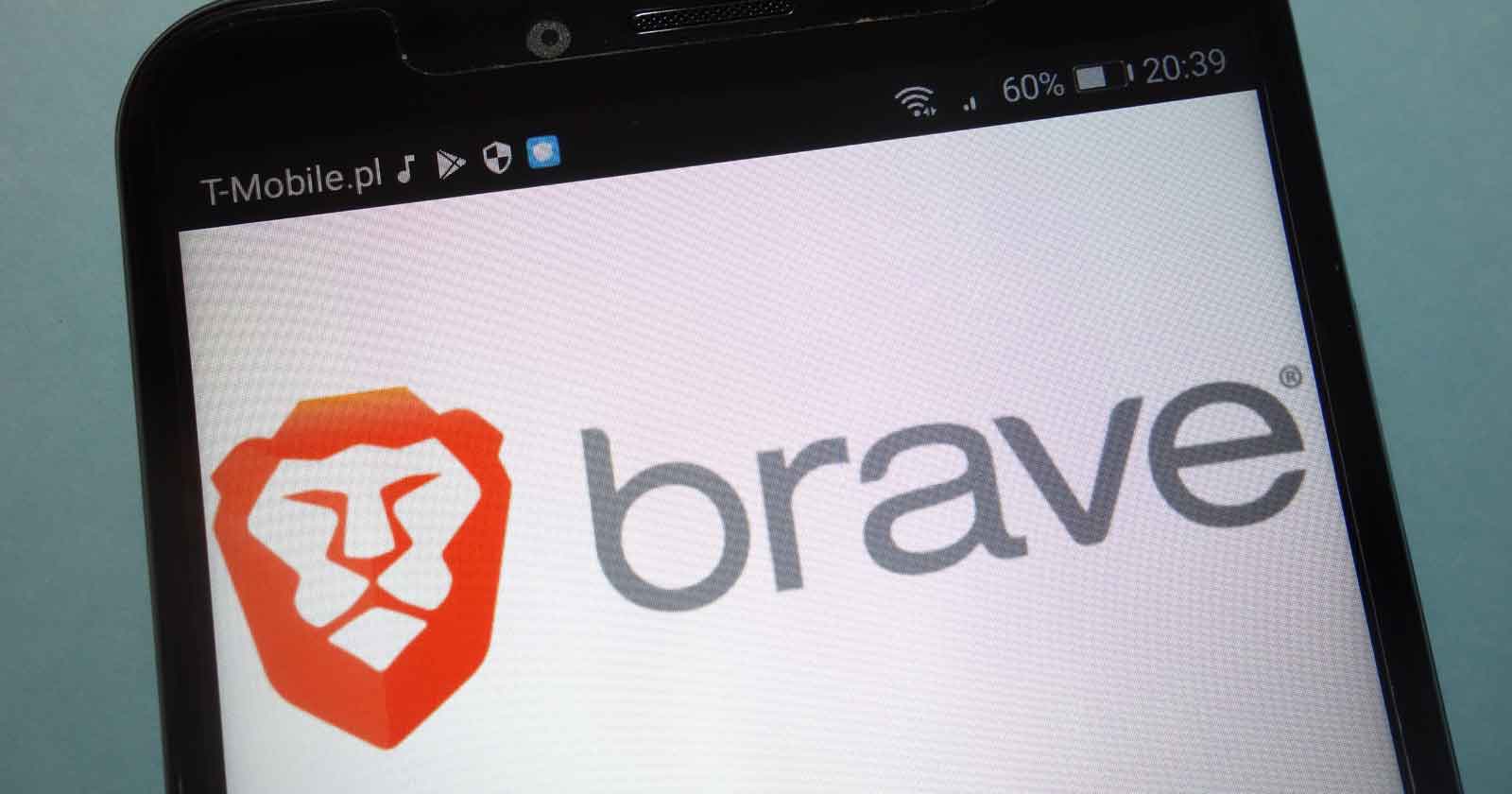
Sneak Preview of Brave Search
A new privacy-first search engine from Brave is currently in preview and testing mode. Their goal is to surpass Google by indexing more of the web, respecting user privacy and finding a way to give publishers proper content attribution. There are many reasons why Brave may succeed as a challenger to Google.
The People Behind Brave Search
Brave is a company that has created a privacy first browser called Brave. One of the founders of the company is the inventor of JavaScript and a co-founder of Mozilla while others are from Mozilla, Evernote and other top companies.
The approach to the web that Brave is taking is one that respects user privacy and also the publishers who create the content that search engines surface in search results.
Screenshot of a Brave Search SERP for Movie Cast
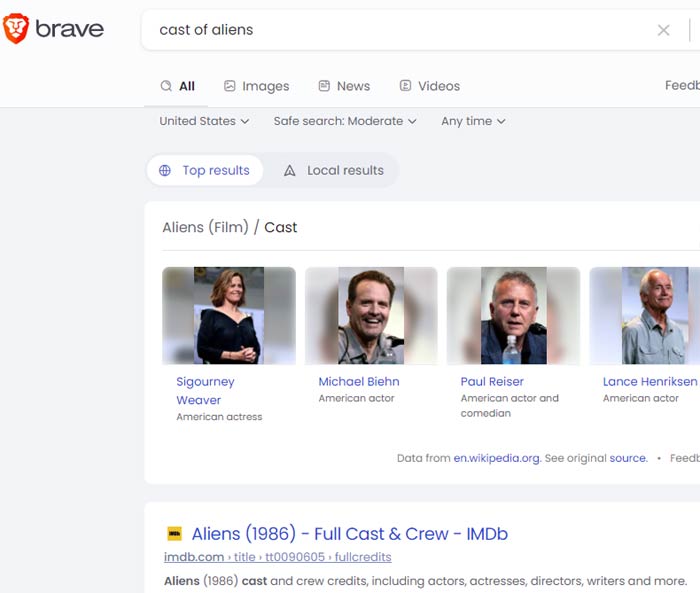
This is Brave Search
Brave Search is a privacy first search engine. It currently does not show advertising.
Advertisement
Continue Reading Below
Brave Search may show advertising in the future but in a manner that does not violate users privacy.
This is Brave’s statement:
“Brave Search does not track you, your searches, or your clicks; it’s impossible for Brave to disclose any information about you to anyone.
Any future ads we may support will be anonymized (like all other Brave ads), and will not influence ranking. In the future, we will also offer paid ad-free search.”
Screenshot of a Recipe Search in Brave Search Engine
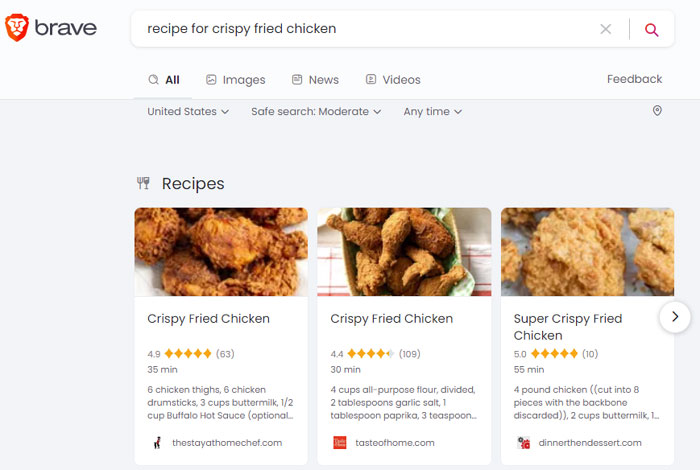
Brave Search Ranking Algorithm
Brave appears to be using their own proprietary ranking algorithm. If a user wants to see search results from Google that they are accustomed to, there is a way to enable a “backfill” function in order to see a mix of Google’s search results.
Advertisement
Continue Reading Below
Brave has published a statement affirming their commitment to showing unbiased search results and more variety.
This is their statement:
“Brave Search will not use secret methods or algorithms to bias or censor results. It will use anonymous community contributions to refine, and community-created alternative ranking models to ensure diversity.”
Brave Search Stock SERPs
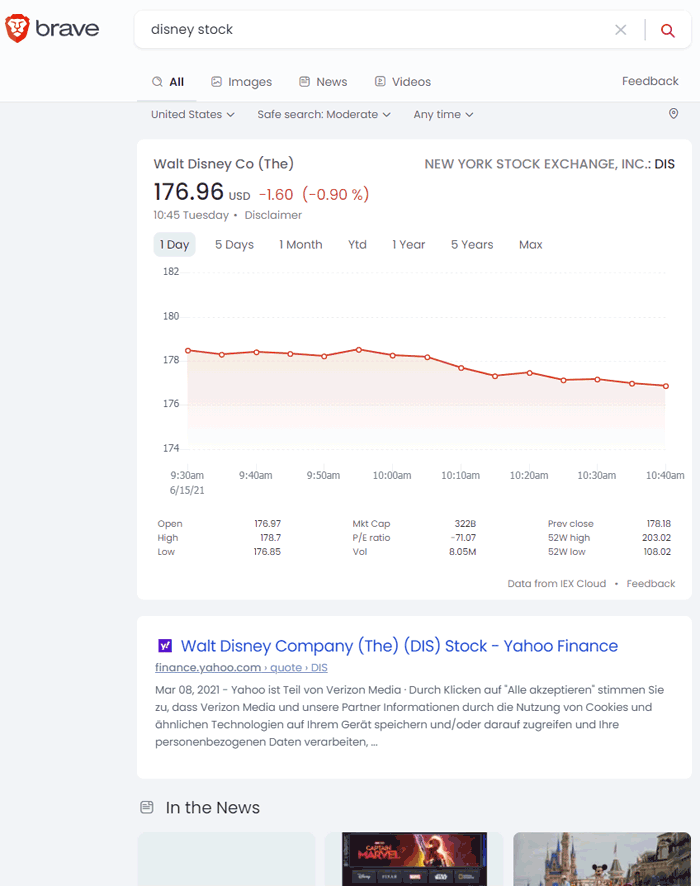
Brave Search and Publisher Content Attribution
One of the most bitter (and disputed) criticisms against Google is that Google is willing to use web content without sending traffic back to those who created the traffic.
This can be an issue with some featured snippets where it’s possible that a certain amount of users find their answers in the snippet and don’t click through to the website that created the content.
The makers of the Brave search engine are aware of this issue and have published a statement about it.
“Please know that Brave respects content attribution, and we are aware that good snippets may lead to traffic deprivation (i.e. less click-through) to the sites providing the content.
We need to weigh this against user expectations of having used other search engines that provide information this way—omitting featured snippets would be detrimental to the user experience.
We are conflicted about this issue of traffic loss, and hope to devise a Brave solution to this conundrum soon.”
How Good is Brave Search?
Brave search is currently in testing mode. So it’s not fair to make judgments on an unfinished product.
That said, the quality of the search results that I have seen are outstanding in terms of usefulness.
Advertisement
Continue Reading Below
On some searches I noticed some domain crowding but it’s hard to criticize Brave for that because the search engine is currently in a testing phase.
Considering that status, Brave search can be said to do a good job at ranking useful information.
For example, Brave search understands entities (people, places and things) and can surface trending news when an entity is associated with it.
Below is a screenshot showing how typing in a name results in a search suggestion that indicates Brave understands the entity.
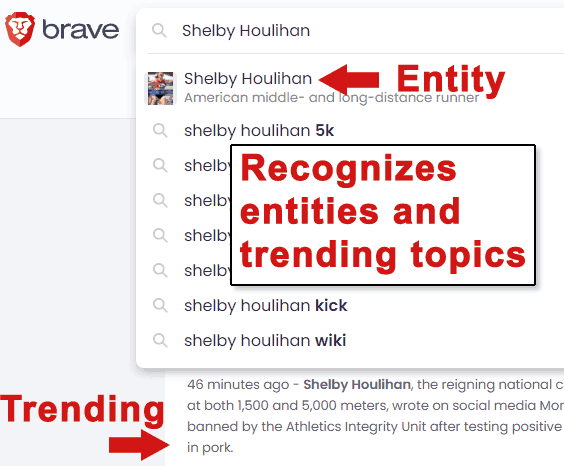
The search results page (SERP) for the runner, Shelby Houlihan, shows a knowledge panel on the right that includes links to social profiles. The SERP itself displays a mix of user intents including news, profile pages, and an overview of the person.
Advertisement
Continue Reading Below
Screenshot of Brave Search Currently in Testing Mode
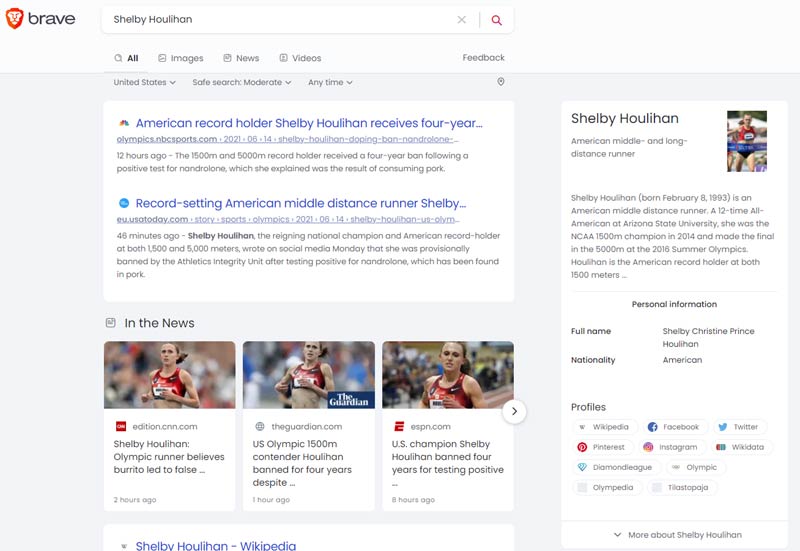 This is what Google’s search results for the same search looks like:
This is what Google’s search results for the same search looks like:
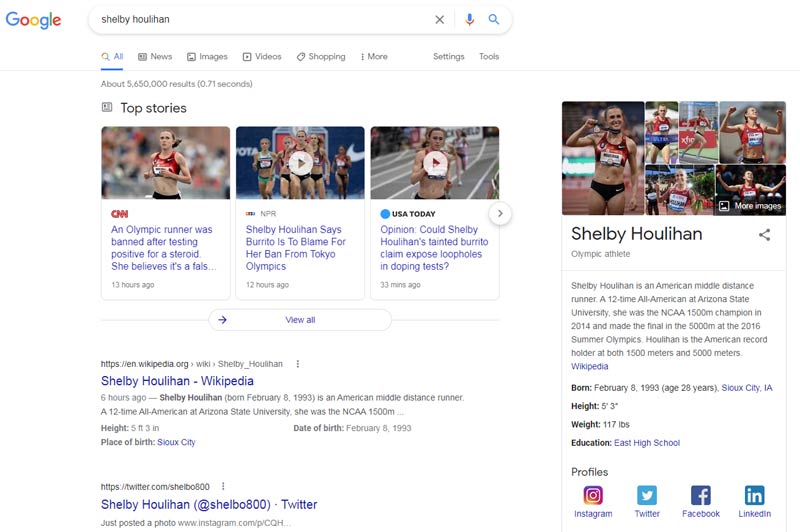
A Better User Experience?
What elevates the Brave search results is how it manages to look uncluttered while accomplishing so much.
Each informational section is contained within a subtly demarcated area that makes it easy to scan the different sections of a search result.
Advertisement
Continue Reading Below
Here is a side by side comparison between Brave and Google for in mobile:
Screenshot Comparison of Mobile Versions of Brave Search and Google
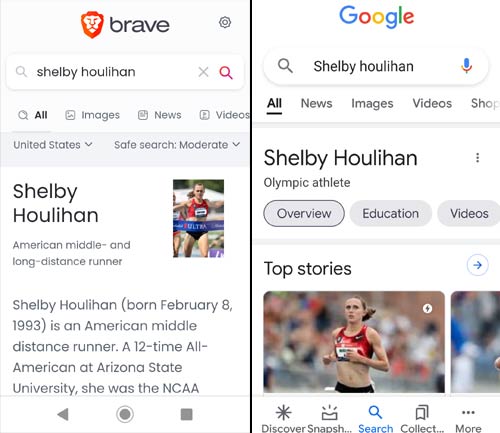
Google crams a Top Stories news carousel at the top plus links to other informational features. Brave by contrast shows an overview of the person.
Google’s search result doesn’t have such clear borders between the different content sections which gives it a looser and somewhat more chaotic appearance in comparison with how Brave displays the search result.
Advertisement
Continue Reading Below
I never previously noticed how unrefined and rough Google’s search results were until I began using Brave search.
Google created the expectation of what a search result should look like and all search engines have followed in Google’s path, including Yahoo, Bing and DuckDuckGo.
Back in the Brave Mobile Search, scrolling down reveals a top stories style carousel.
Screenshot of Brave Search on a Mobile Device
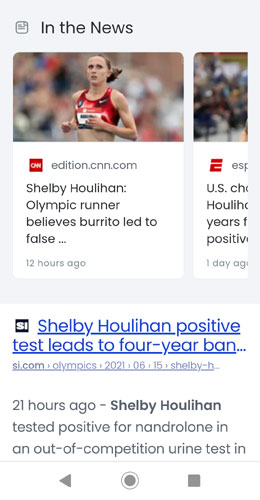
There is a lack of clutter in Brave that sets it apart not only from Google but from Bing and DuckDuckGo.
Advertisement
Continue Reading Below
After using Brave, I suspect that a reason why I have not embraced Bing, despite liking Bings search results, is that Bing feels similar to Google.
Brave on the other hand offers me something different that feels just right and makes me want to return to it, something I’ve never felt using any other Google competitor.
Before using Brave search I was fine with how Google’s search results were displayed.
But after using Brave I began noticing a lack of refinement in how Google’s search results were displayed and wanting to go back to the relatively more relaxed user experience provided by Brave search.
Google Versus DuckDuckGo Versus Bing Versus Brave
Here is a comparison between the three search engines. The search query is a vague query that contains multiple search intents: Lollipop.
A search for “lollipop” can be for the candy, the song, a video of the singers of the song and so on.
Google’s Search Results for Search Query Lollipop
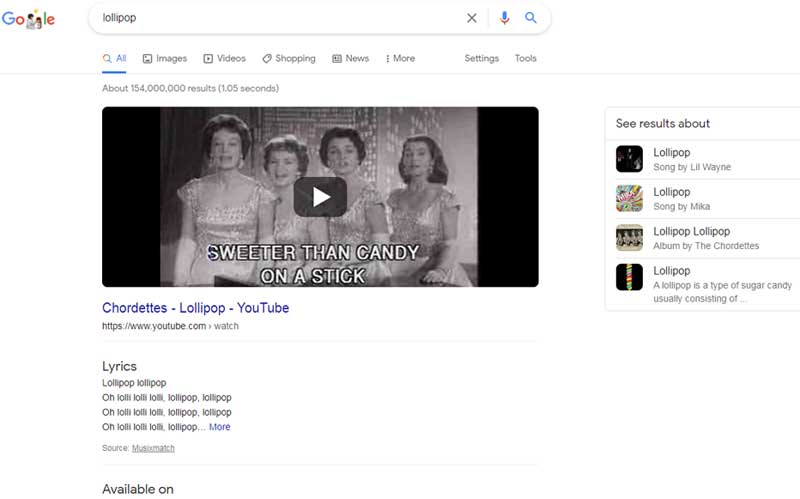
Bing’s SERP for Lollipop
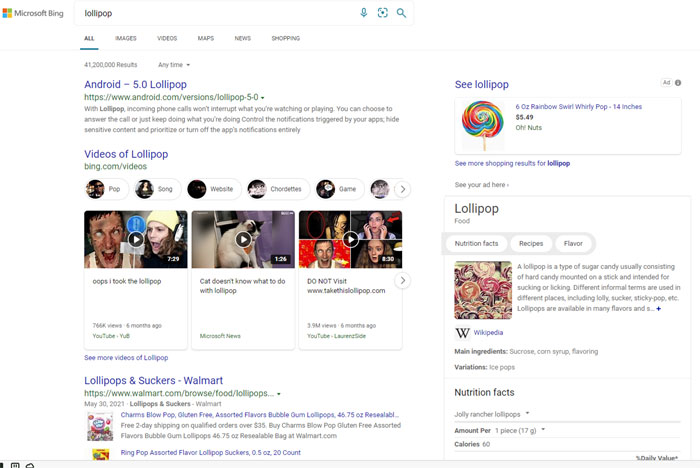
This is DuckDuckGo’s Ad Laden Search Result
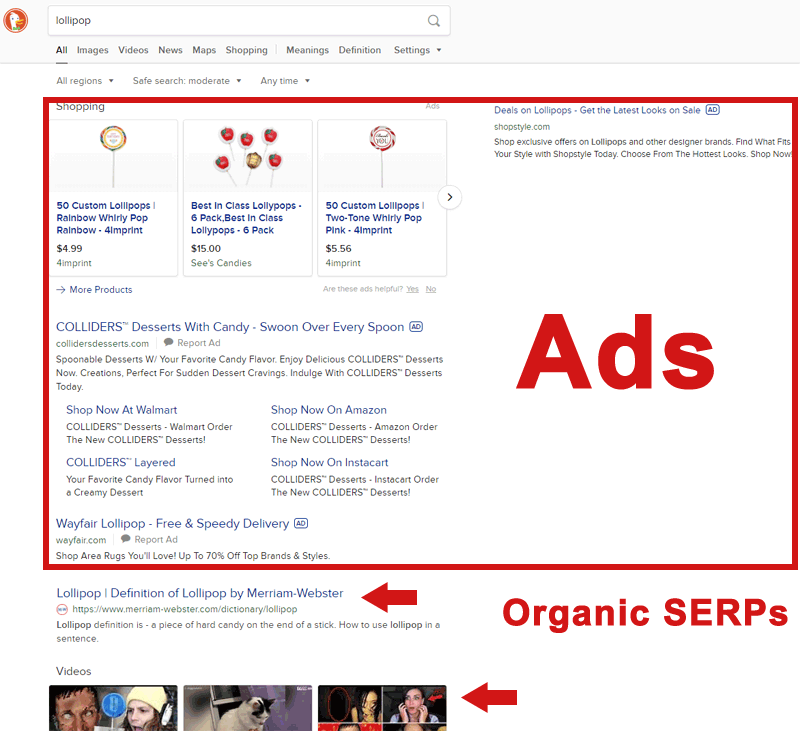
Screenshot of Brave Search Results for Lollipop:
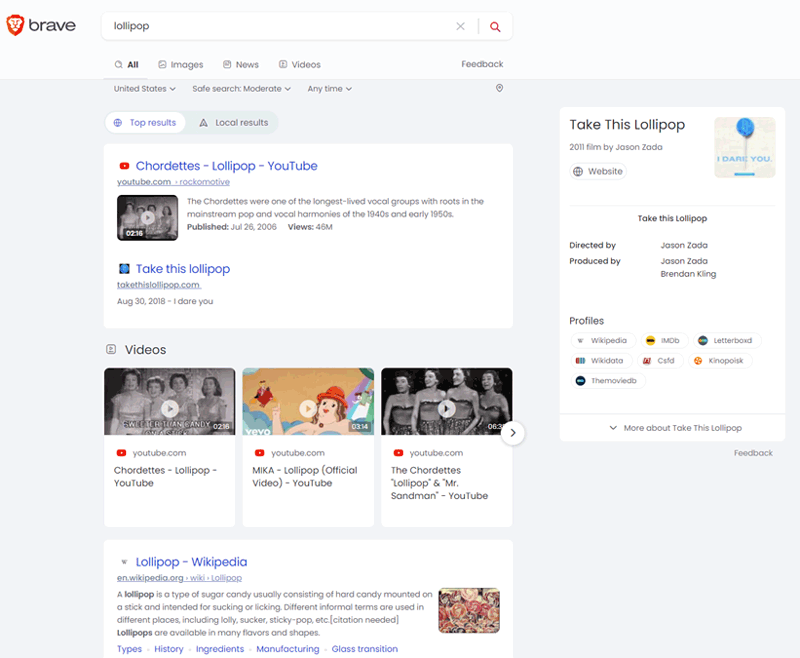
SERPs for Multiple Search Intents
One of the challenges for search is showing results for vague queries that have multiple search intents. The classic is example is the word, jaguar, which can mean the automobile, the animal and a sports team.
Advertisement
Continue Reading Below
This is how Google displays the Jaguar SERP:
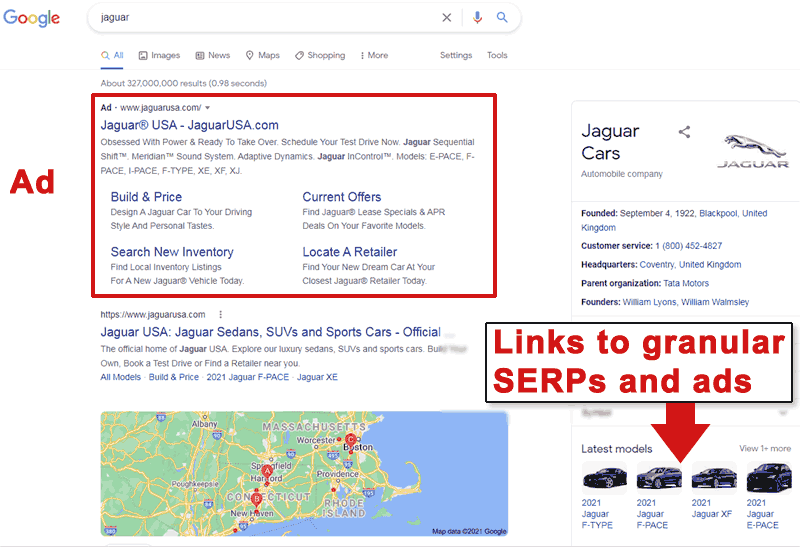
This is DuckDuckGo’s SERP for Jaguar
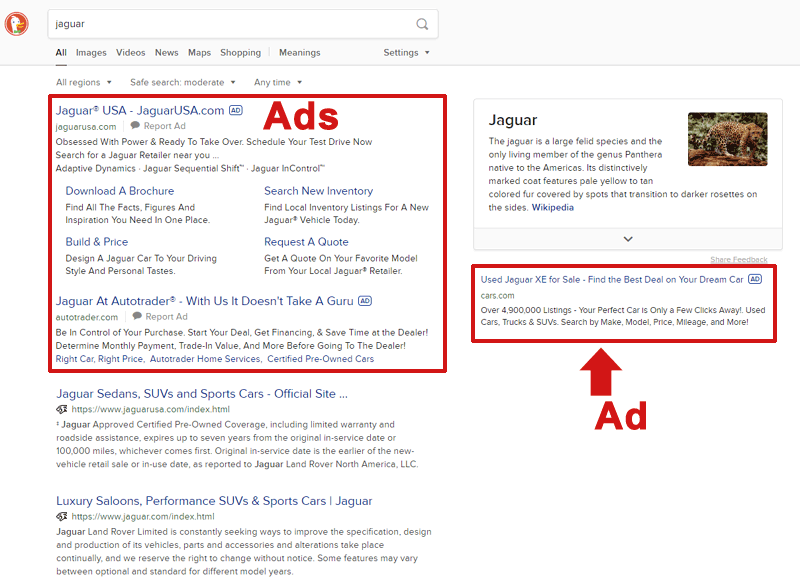
Screenshot of Brave Search SERP for Jaguar
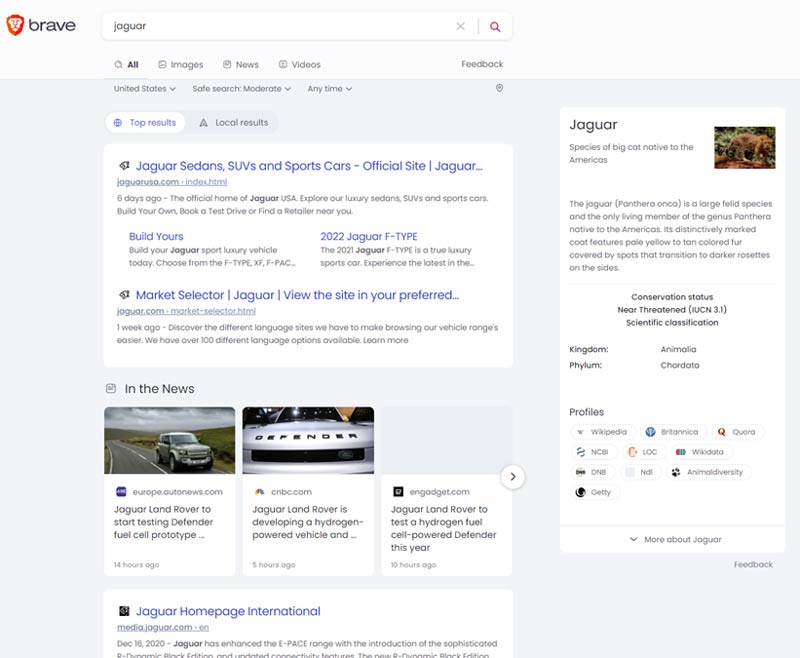
Of the three search results it’s clear that Brave shows the cleanest search result that many may find pleasing because Brave is not currently showing advertising.
Brave Search Intends to Be Better than Other Engines
Not showing advertising is the strategy that Google used for years to peel users away from the dominant search engines and Internet portals in the early 2000’s.
Advertisement
Continue Reading Below
Brave may be using that same strategy of not showing ads in order to peel off users from the dominant search engines until it reaches a critical mass of users.
One thing that is clear is that Brave Search intends to win over users away from Google and Bing.
According to Brave:
“Brave’s goal is to reduce the reach of other search engines. …In a short time our search results will actually surpass other engines, both by combatting their ranking algorithm bias, and by indexing a more complete set of the pages on the Web worth reading.”
Brave Search is still in testing mode. But even in testing mode Brave Search shows remarkably useful search results.
Some Internet users do not like this less is more kind of design aesthetic so it remains to be seen if users will enjoy Brave enough to make the switch.
One thing in its favor is that presenting a new user experience is a strategy that previous challengers have not tried and could account for their failure to surpass Google.